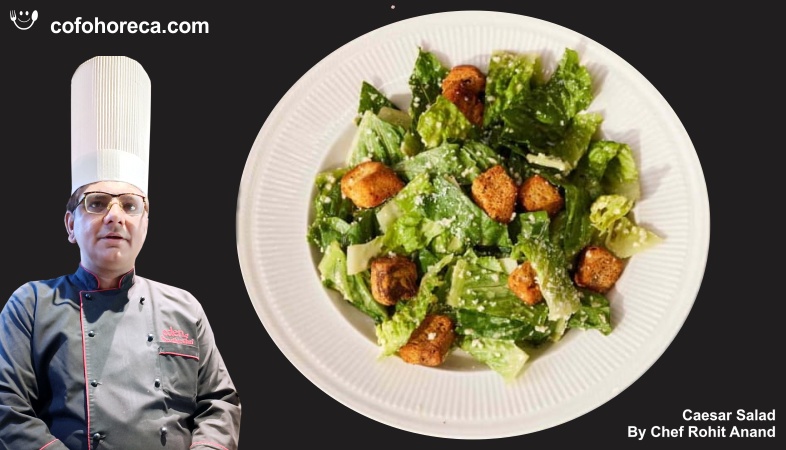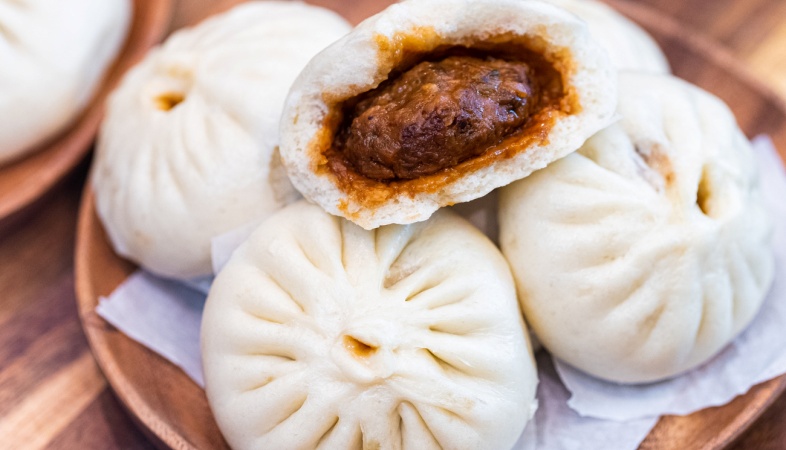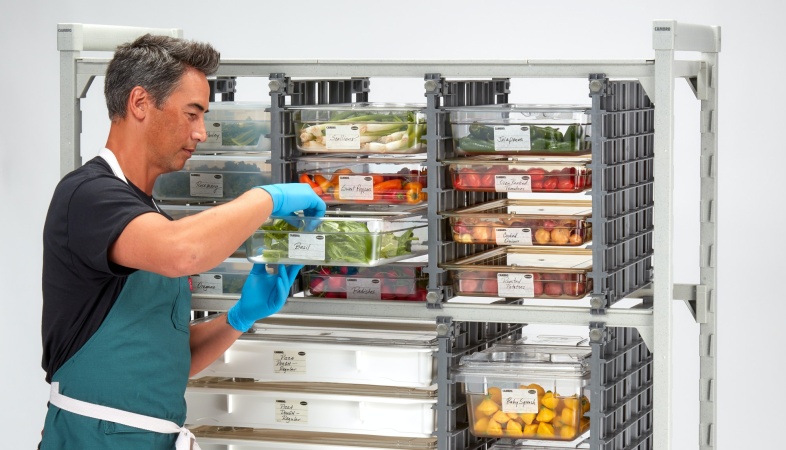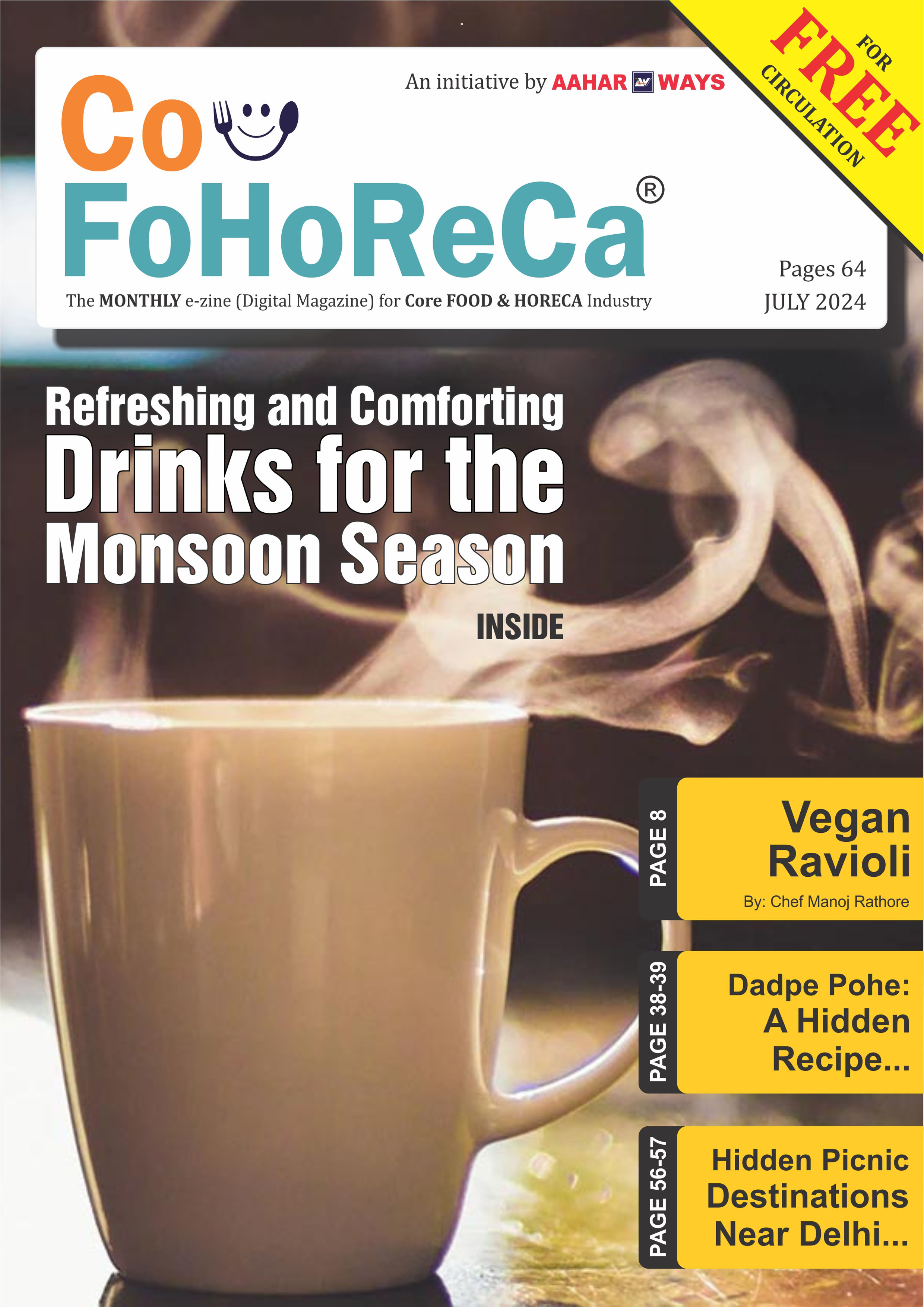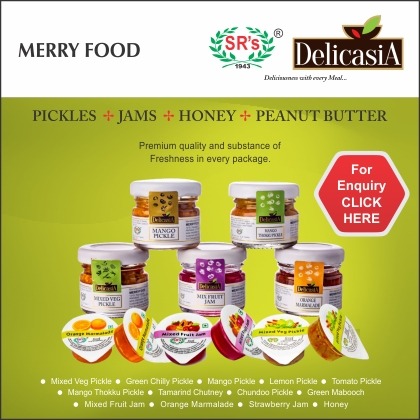Herbal Tea and Its Health Benefits - By Dr. Sandip Sahebrao Tapkir
In today's modern world, people are becoming more health conscious and tend to include more healthy food & beverages in their daily lifestyle.
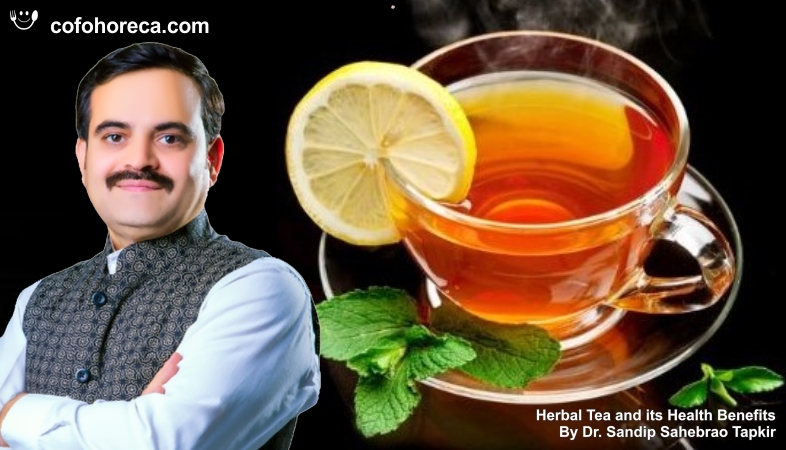
1. Introduction:
In today's modern world, people are becoming more health conscious and tend to include more healthy food & beverages in their daily lifestyle. The primary focus of this study is to know, understand and bringing forward the herbal tea and its role to become healthy. A few decades back, herbal tea was considered as a rich & classical beverage to consume in star hotels and elite crowd, but due to its popularity and health benefits, it has become more popular among the masses. Now it is more of a healthy beverage rather than a luxurious drink.
1.1 History of Herbal Tea:
Herbal tea, also known as herbal infusion of various flavourings, herbs & spices, is referred to as tisanes in UK. The term "herbal" tea is often used in contrast to the so-called true tea (e.g., black, green, white, yellow, oolong), which is prepared from the cured leaves of the tea plant, Camellia sinensis. Most tisanes do not naturally contain caffeine. However, there are a number of plants, that do contain caffeine or another stimulant, like theobromine, cocaine or ephedrine. Some have the opposite effect, acting as a sedative. Some common infusions have specific names such as mate (yerba mate) and rooibos (red bush).
It is said that all types of tea had been introduced publicly during the Britishers' invasion period. But according to the documented evidence, the history of drinking tea in India dates as early as 750 BC. At that time, it was not as commercialized as it is today. It was used mostly by monks and saints who used them to stay alert. Later it was used for its medicinal purposes, like the herbal tea in India.
It began to be consumed commercially only after the invasion of the British in India. Their addiction to tea led us Indians to drink it on a large scale. It was a major turn for fate of tea in India. As of now, India is the second largest producer and largest consumer of tea in the world.
As per a legend, the discovery of tea was very different from that of the one with the Chinese emperor. This particular legend dates back to about 2000 years earlier. A monk, who later founded the Zen Buddhism, determines to dedicate seven years towards contemplation and prayer. During the fifth year, he was about to fall asleep. Out of resentment, he plucked some leaves of the nearby bushes and ate them.
The tea cultivation in regions like Nilgiri, Assam and Darjeeling became mass producers at the time of the East India Company. Herbal tea is one of the latest trends in India, which is preferred by the health-conscious people.
Herbal tea is composed of fresh or dried flowers, fruit, leaves, seeds or roots. This tea is made by pouring boiling water over the plant parts and letting them steep for a few minutes. The herbal tea is then strained, sweetened if desired, and served. Many companies produce herbal tea bags for such infusions. This is a scientific approach of composition and mixing of infusion portions, flavourings with suitable herbs, spices, condiments or barks, leaves, seeds etc.
1.2 Current Scenario of Herbal Tea:
Presently, the worldwide-spread use of herbal tea is in the form of ready-to-brew bags or plant leaves, stems, roots, seeds, etc. in dried form which are able to be prepared with different traditional methods according to taste and preferences. However, the differences between the brewing methods and parameters of each plant and the promiscuous practices made, may lead to lessen the expected benefits and even result with major health risks. Therefore, in order to prevent mistakes in traditional methods, to maintain a microbiologically safe product while allowing them to be consumed in every season, to find out a value-added material for the usage in beverage sector, herbal extracts are produced by standardized methods. Furthermore, miscellaneous studies have been performed on the topic of medicinal herbal extracts and their addition to the beverages for the development of the taste and sensorial characteristics, nutritional values, and functional properties.
2. Health Benefits of Herbal Tea:
Herbal tea is popularly known for its health and medicinal benefits. In today's scenario, it has become the most preferred, desired and favorable health beverage all over the world. Many researches are being conducted on herbal tea and beverages and that is why we see so many multi-national brands introducing their herbal tea products. Although herbal tea has been around for a long time, modern-day science and medicine is discovering and finding various ways to include it in everyday routine.
.png)










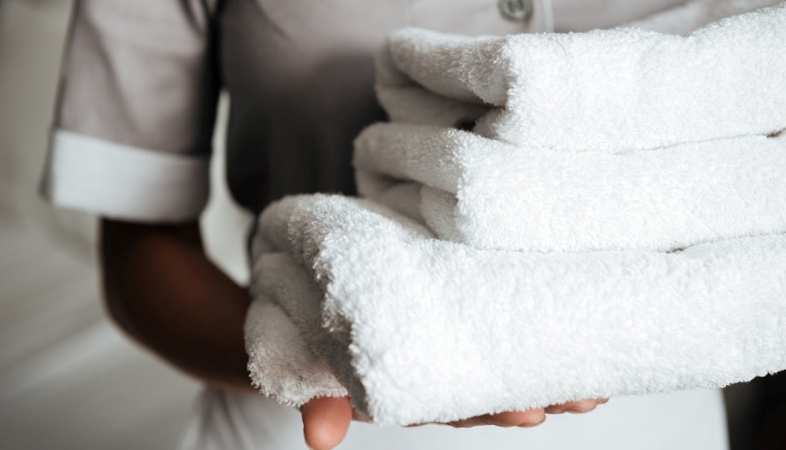


.jpg)



